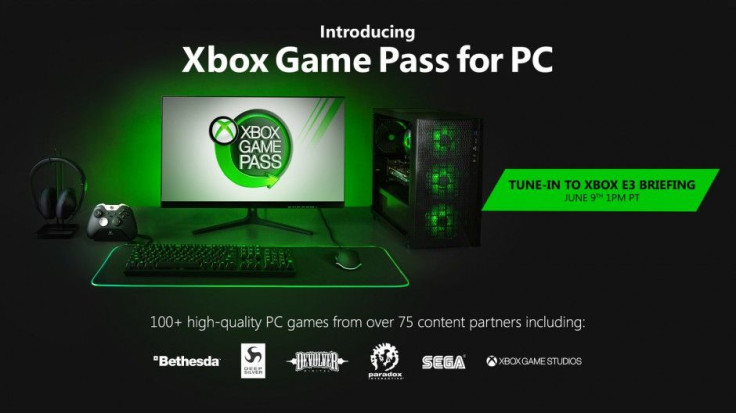In a far cry from its past strategy, Microsoft and Xbox are now turning to their former competitors in their latest approach to PC gaming.
In a blog post on Xbox Wire, Phil Spencer, head of Xbox, stated plans to roll out the Xbox Game Pass to PC, as well as bringing a total of 20 Xbox Game Studios titles to the platform’s biggest digital distributor, Steam.
“Xbox Game Pass for PC will give players unlimited access to a curated library of over 100 high-quality PC games on Windows 10, from well-known PC game developers and publishers such as Bethesda, Deep Silver, Devolver Digital, Paradox Interactive, SEGA, and more,” Spencer stated in the post. “And just as we committed on the console, it is our intent to include new games from Xbox Game Studios in Xbox Game Pass for PC the same day as their global release, including titles from newly acquired studios like Obsidian and inXile.”
In addition, Spencer stated that this Xbox Game Pass for PC will be different compared to the one on Xbox, as its being designed for use with PC gamers. It is quite surprising that Microsoft took a turn like this, although I’d like to hold off on judgment until the titles for the PC version of the Xbox Game Pass are released.
What I’m actually more interested in is the second point, with Microsoft and Xbox finally deciding to sell their exclusive titles on the most popular PC storefront, Steam. This will be kicked off with Halo: The Master Chief Collection, which is set to come to the PC at a later date. It will be available on both Steam and the Microsoft Store, demonstrating the company’s resolve to give its players the freedom of choice. The next wave will be 20 Xbox Game Studios titles to be sold on Steam, such as the upcoming Gears 5 and the Age of Empires trilogy. Spencer stated that Microsoft will continue to add more games, which sheds some light as to what they’re strategy for the future is looking like.
It’s a very novel approach, one that’s a good gesture in the current PC gaming market. Still, I can’t help but wonder what this means for the Xbox (the console) and its future, as Microsoft is looking more and more to embrace its PC roots going into the next generation.

















